The post How to Budget for a Trip as a Couple appeared first on The Blonde Abroad.
from The Blonde Abroad https://ift.tt/2G4liMc
The post How to Budget for a Trip as a Couple appeared first on The Blonde Abroad.
The post The Coolest Airbnbs in New Orleans appeared first on The Blonde Abroad.
The post A Local’s Guide to Cape Cod appeared first on The Blonde Abroad.
The post The Best Places to Travel in the United States Right Now appeared first on The Blonde Abroad.
The post The Ultimate Guide to Visiting Banff National Park in the Winter appeared first on The Blonde Abroad.
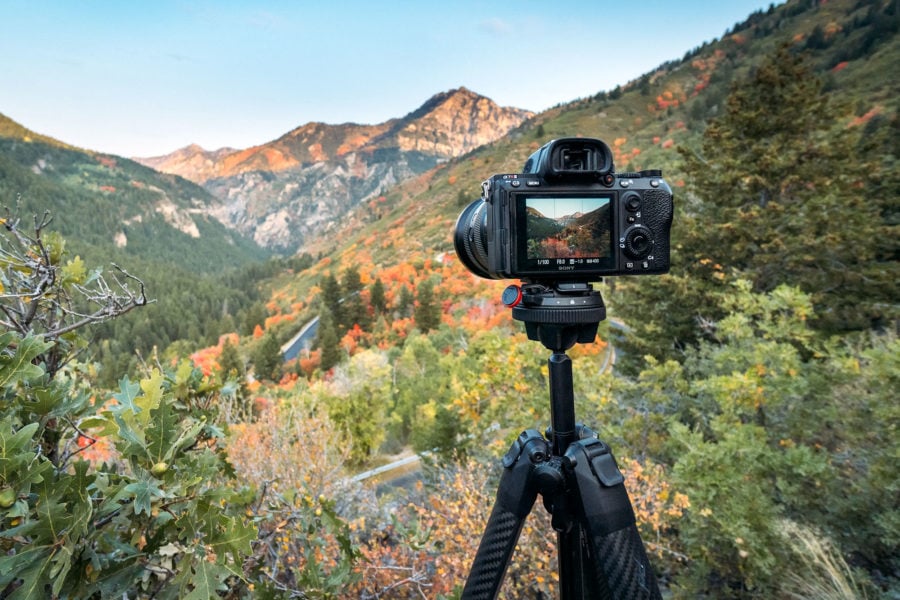
After 4-years of development, the Peak Design Travel Tripod is finally out! Here’s why I think it’s the best lightweight tripod for travel & backpacking adventures.
If you’re a frequent traveler like me, or enjoy hiking out into the backcountry with your camera, finding a great lightweight travel tripod can be a difficult task.
You want it to be sturdy of course — but small, lightweight, and easy to pack too.
I’ve owned many travel tripods over the years, but Peak Design’s new Travel Tripod is the closest I’ve found to perfection — lightweight, compact, and an innovative design makes it the best lightweight tripod on the market right now.
If you’re looking for a high-quality tripod for travel & backpacking, it’s a great choice!
Below I’ll give you a rundown of its features, the how to use it, and some of the reasons it’s become one of my favorite pieces of photography gear.
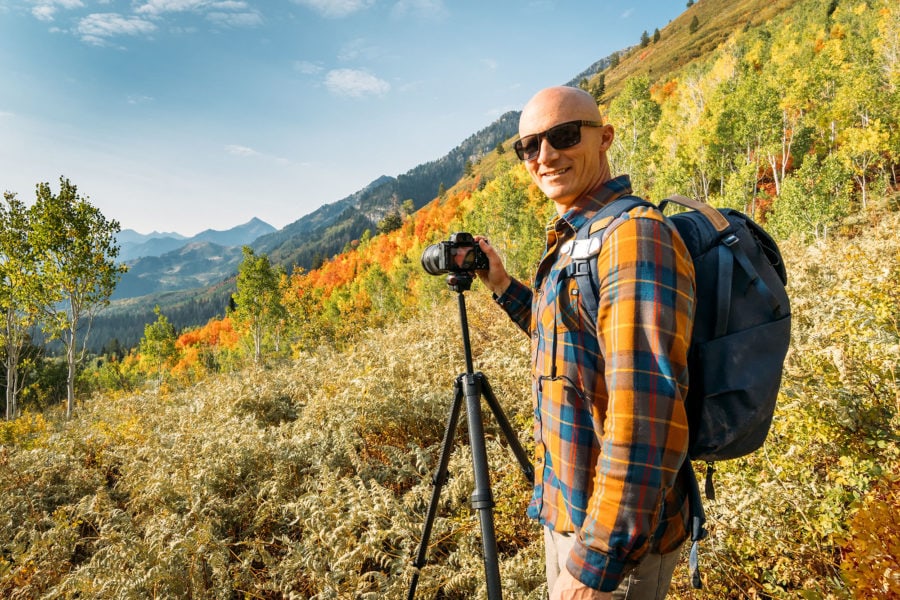
The Travel Tripod is available in two versions and price points — aluminum ($350) and carbon fiber ($600). I own and have been using the carbon fiber version since July, and it became a mainstay in my travel photography kit.
I’d say I pack it on 75% of my photography trips these days, due to its compact nature. It’s really easy to travel with compared to other tripods!
Weight (Carbon Fiber Version): 2.81 lbs (1.27 kg)
Weight (Aluminum Version): 3.44 lbs (1.56 kg)
Maximum Height: 60″ (152 cm)
Minimum Height: 5.5″ (10 cm)
Folded Length: 15.2″ (39 cm)
Load Capacity: 20 lbs (9.1 kg)
Tripod Leg Sections: 5
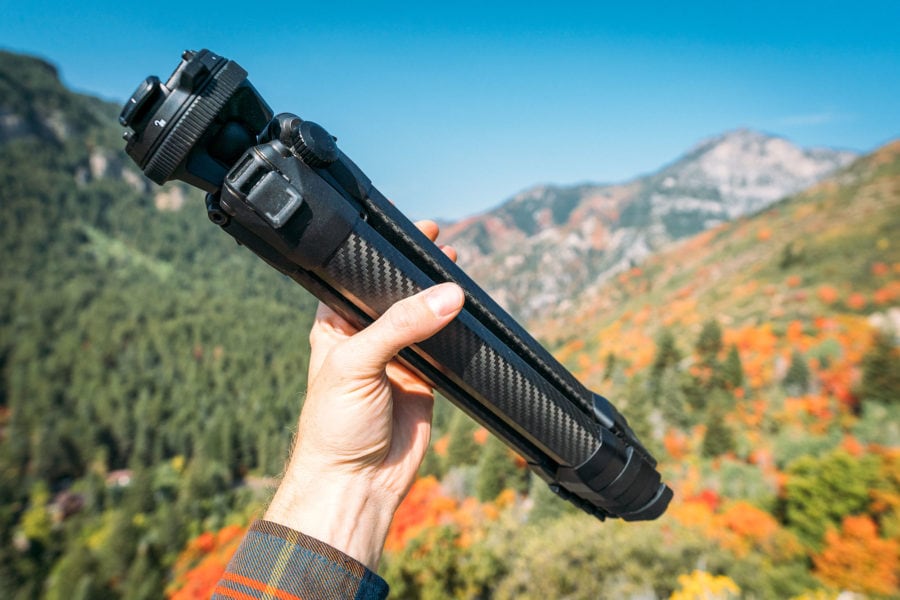
My favorite feature of the Peak Design Travel Tripod is just how small & sleek the tripod is when fully collapsed — there is no wasted empty space!
I don’t know how they did it, but the tripod’s folded diameter is very small, so it can fit into a water bottle pocket on the side of a backpack (or even INSIDE a backpack).
The tripod’s legs have five sections with a lever lock for each. Its maximum height is 60” inches (152.4 cm) with the center column raised. This is actually very tall!
Because I’m six feet tall, with most travel tripods I have to bend over quite a bit to look into my camera, but not this one. Which is pretty amazing with how small it packs down!

Its minimum height with the collapsed legs extended wide (“low mode”) is 5.5” (14 cm). In “table top mode” the maximum height is 22.5” (57.2 cm) with the center column raised and 13.125″ (35.9 cm) with the center column down.
As for weight capacity, it easily carries most cameras and lenses. Including a 70-200mm telephoto lens. It’s incredibly sturdy even with the tripod leg sections fully extended.
In fact, this is what’s most surprising about the tripod. Many lightweight travel tripods with several leg sections can be wobbly and unstable in the wind — this one is not!
Peak Design’s special omni-directional ball head is another great feature. It is ARCA SWISS compatible and has a standard camera plate, an adjustment ring, locking ring, quick release, and a bubble level.
It also features two removable pins that make it L-bracket compatible. The ball head is detachable from the center column as well (I’ll talk more about this below).
Setting up the Peak Design travel tripod is simple. The cam levers are easy to open and lock very securely so there’s little chance of them opening accidentally.
The tripod won’t slip on most surfaces thanks to its rubberized feet (if you shoot in icy or snowy conditions and want more grip, Peak Design sells a spiked-feet set for $25).
A small adjustment knob controls the raising and lowering of the center column. The adjustment ring is smooth and easy to operate. A locking ring prevents the quick release from being used accidentally.
There is a detachable hook on the bottom end of the center column that you can hang your bag on for even more stability.
The ball head is detachable from the center column. This allows the tripod to go into “low mode” (5.5” or 14 cm from the ground), which is perfect for wide angle, macro, or creative shots.
It also gives you the option of using Peak Design’s universal head adapter, which you use to attach a third-party tripod head, like one with video pan & tilt controls.
You can also make the tripod weigh even less! The company sells ultralight conversion kit, which consists of three special feet that transforms it into a table-top tripod. Perfect if you are trying to save weight on a long-distance backpacking trip!

The tripod has a hex wrench tool mounted to a removable leg clip holder, plus a bushing removal tool (used for maintenance and stored in a hidden pocket in the tripod case).
Keep the hex wrench tool with you at all times! You need it to attach the plate to the camera, remove the two pins on the ball head plate, and remove the ball head from the center column.
The travel tripod comes with a a very cool mobile phone mount, stored in the bottom of the center column above the detachable hook (a magnet keeps it from falling out when you remove the hook!).
It snaps easily onto the ball head and grips phones securely.
I find its great for shooting Instagram Stories of yourself on the go, and for Instagram or Facebook Live posts. No need to lug around a separate iPhone tripod mount!
Despite all of the great features of the Peak Design travel tripod, it does have a few minor disadvantages. One is that the legs only have two leg angles — tall or very low, there’s no middle angle. Many tripods usually have 3 angles.
Another issue is the lack of a video panning knob. You can still turn the ball head horizontally with your hand, but unless you have very steady hands, it won’t be super smooth. For video work you might want a dedicated video head.
The hex wrench tool is easy to lose. I’ve already lost my tool once, so now I just keep it in my camera bag rather than attached to the tripod.
Finally, the awesomeness of this travel tripod comes at a price. The aluminum model is $350 while the carbon fiber model costs $600. Not the most expensive tripods out there, but not really cheap either.
The Peak Design Travel Tripod is a great product. Its compact size and low weight make it ideal for traveling, backpacking, and every-day photography.
It’s stable, well designed, and securely supports the vast majority of cameras, even your smartphone. And if you have a favorite ball head, simply swap it in using the ball head adapter.
While not cheap, it’s an outstanding lightweight tripod overall. It will keep your camera secure and your back happy while traveling and hiking! ★
I hope you enjoyed my review of the Peak Design Travel Tripod! Hopefully you found it useful. Here are a few more photography articles that I recommend you read next:
Have any questions about the Peak Design travel tripod? Are you planning on buying one? Drop me a message in the comments below!
This is a post from The Expert Vagabond adventure blog.
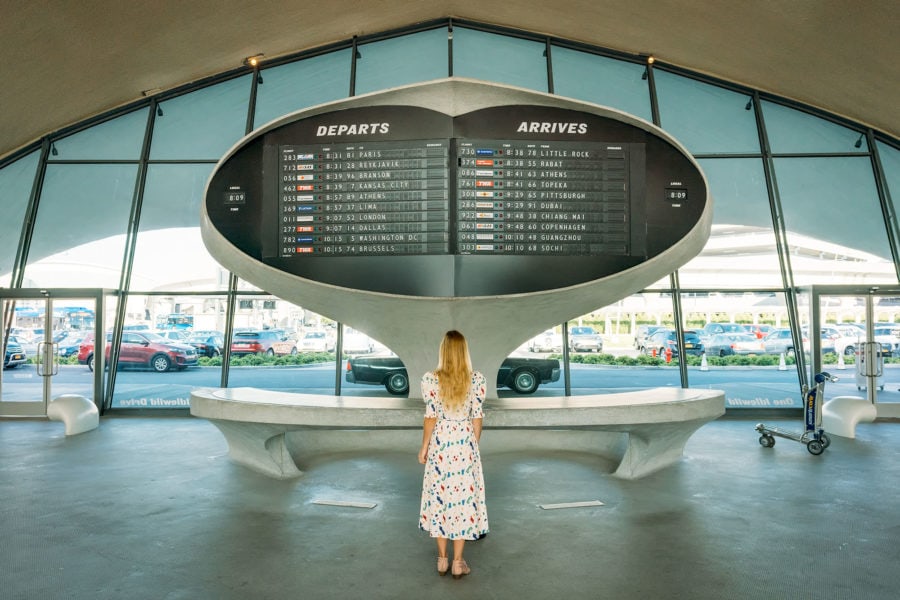
Want to save money on flights? Professional travelers have a secret trick called “mistake fares” which helps them find amazing airline deals that other people miss.
Although less common, error and mistake fares on flights do happen on a regular basis. If you know how to track and spot them, you can snag some of the cheapest flights possible.
In this guide I’ll show you how to make use mistake fares to save hundreds of dollars on your next airline ticket!
From time to time, airlines and travel sites make mistakes when listing their fares, and advertise a flight for significantly less money than intended.
If you can catch their mistake on time and book a flight, they are obliged to honor that posted price, and you can save hundreds of dollars on a flight.
For example, a flight from New York to Paris might be listed by mistake for only $100, a huge error from the normal price of about $1000 for a round trip ticket.
Error and mistake fares can occur for a number of reasons:

Error and mistake fares, while uncommon and unpredictable, still happen regularly enough to keep an eye out for them.
Special tracking sites can do this for you automatically — so you don’t have to check flight prices manually (which would be crazy time-consuming).
You can sign up for mistake fare newsletters or follow the social media profiles of these tracker sites to get price alerts as soon as mistake fares happen.
Or, just check their website on a regular basis before planning a trip.
Taking advantage of mistake fares works best if you’re flexible with WHERE you want to go on vacation.
For example, if you wanted to visit Venice, but find an awesome mistake fare deal for Iceland that would save you $500, are you willing to update your travel plans?
Secret Flying offers a free service to find flight and hotel deals. The Error Fare section lists current mistake fares for impressive savings. For example, a recent round-trip flight from Budapest, Hungary to Sao Paulo, Brazil mistakenly dropped to only 173 EUR.
Scott’s Cheap Flights seeks out rare price drops and alerts you immediately. Those who travel often may want to invest in the Premium Subscription , which costs $49 per year, with special deals reserved for paying members only (I am one, and it’s great!).
Fly4Free regularly updates their page with the latest mistake fares on flights. Subscribe to their daily newsletter for updates, so you don’t miss a good deal while it lasts.
TheFlightDeal searches the web for some of the best deals on flights and other travel costs. Sign up for their newsletter to get mistake fares sent straight to your inbox, along with deals on credit card offers, hotels, and car rentals.
Airfare Watchdog will automatically send you alerts on the lowest flight prices and travel news. You can set up notifications linked to your favorite destinations by airport. On the website, search for deals on your next dream destination or browse through their list of current mistake fares.
Skyscanner, my favorite flight comparison site, lists some of the lowest deals on flights. If you set up price alerts for your intended travel itinerary, Skyscanner will send notifications so you get good deals on flights and potential mistake fares.
Did you find a mistake fare for a fraction of the normal cost? Awesome. To lock in your lower rates, I suggest a few of the following tips:
When you book with a third-party website, that travel site sends the booking to the airline for confirmation. Flight confirmation from the airline can take up to 24-hours, enough time for airlines to correct the mistake fare.
Booking directly with the airline cuts out the middleman and gives you a better chance of snagging that mistake fare flight deal.
Also, keep in mind that in the United States, passengers get a 24-hour cancellation period when booking directly with an airline. That gives you a little flexibility in case you change your mind about a flight.
Once you book your mistake fare, I suggest waiting a couple of weeks before booking any hotels or car rentals at the destination. You need to make sure that your sweet flight deal gets approved.
You’ll receive an e-ticket number or 6-digit PNR code for your reservation.
Once you receive this confirmation, airlines are pretty much required to honor their ticket price, even if posted by mistake. Otherwise, they could suffer bad press and negative customer reviews.
Error and mistake fares stand out as just one of the many ways to save money traveling. After 10 years exploring the world, I’ve discovered many ways to save on everything from hotels to day to day expenses.
If you want to save more money on your next travel adventure, make sure to read my free ultimate guide to travel tips for beginners.
Check out my travel gear guide to help you start packing for your trip.
Ready to fly? Here’s how I find the cheapest airline flights.
Discover Cars is a great site for comparing car prices to find a deal.
Learn how I save money booking hotels & vacation apartments.
Don’t forget travel insurance! Protect yourself from possible injury & theft abroad. Read why you should always carry travel insurance.
I hope you enjoyed my guide to mistake fare airline flights! Hopefully you found it useful. Here are a few more wanderlust-inducing articles that I recommend you read next:
Have any questions about booking mistake fares with airlines? What about other suggestions? Drop me a message in the comments below!
This is a post from The Expert Vagabond adventure blog.
The post Tips for Preventing Dog Motion Sickness appeared first on The Blonde Abroad.
The post The Beginner’s Guide to Working a Wine Harvest appeared first on The Blonde Abroad.

Want to live & work from a Caribbean island or a historic European city? Special international visas for digital nomads and remote workers are finally here!
Traveling the world while working online from your laptop has been a dream for millions of self-proclaimed digital nomads — including me.
However working from foreign countries while traveling on a tourist visa is technically illegal in most places.
Tourist visas also usually expire after 30-90 days, and it’s not always easy to renew them. What if you want to stay longer?
That doesn’t stop digital nomads from working while traveling, but it can make things complicated, and with travel restrictions due to COVID-19, it’s much more difficult to work & travel internationally.
Visa laws in most countries are not set up to deal with this new class of modern nomads who are living and working remotely around the world.
But that’s finally starting to change, as some countries have recognized the need for and launched so-called “digital nomad visas”, “remote work visas”, or “freelancer visas” specifically to entice foreigners to come work & contribute to their economies.
Many of these destinations are hoping the remote work visas will generate income to help make-up for lost tourism revenue due to the pandemic.
Digital nomads are basically remote workers who travel to different locations on a regular basis. They use modern technology to work from coffee shops, hotels, co-working spaces, or libraries with a WiFi connected laptop or smartphone from anywhere in the world.
Freelancers are self-employed, working for themselves or other companies as independent contractors. Freelancers can travel while they work, or just work from home while living in one place on a long-term basis.
The two are similar, but not exactly the same. The visas listed below can be obtained by both kinds of workers, digital nomads and freelancers.

Estonia became the first country to create an e-residency program that allows foreign entrepreneurs to license an EU-based online business. Then, in June 2020, they also opened up a one-year digital nomad and freelancer visa that allows foreigners to live in the country while working remotely.
Partly due to the dramatic drop in tourism because of the Coronavirus pandemic, the country of Georgia is one of the latest to offer a digital nomad visa called “Remotely from Georgia” to help stimulate their economy. If you’re a remote worker, why not wait out the pandemic and work from a country known for its low-cost of living, colorful cities, and epic mountain landscapes?
Barbados has also just opened its borders to digital nomads and remote workers who are looking to escape the pandemic while basing themselves in a beautiful island destination. The “Barbados Welcome Stamp” is a special 12-month visa for remote workers, which can also be renewed for even longer. Why not live next to the beach and work from home in Barbados!
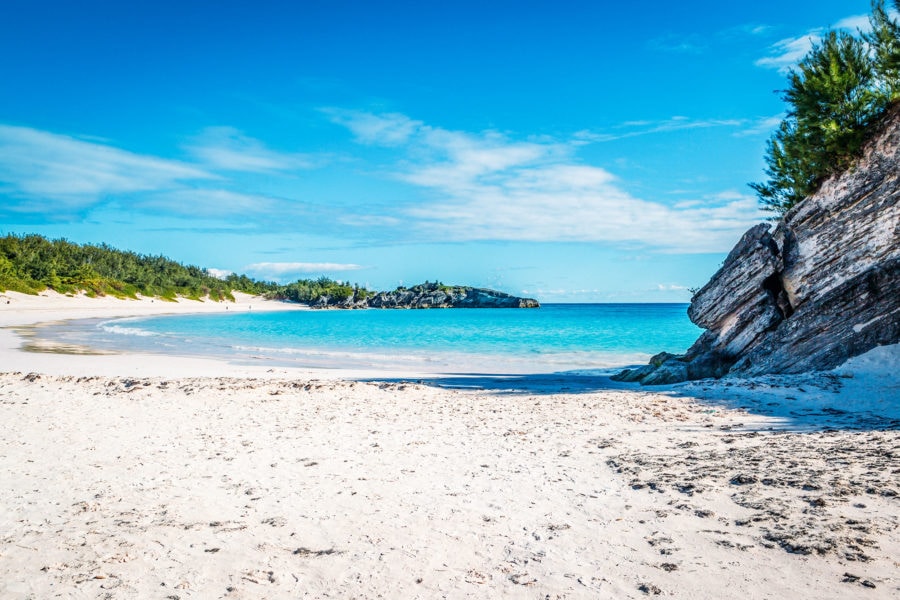
Bermuda has joined the remote work visa club! Their recently released “Work From Bermuda” digital nomad visa is just an expansion of an older residency program, which allows digital nomads and remote workers to stay in the country for up to a year. Aimed at professionals who normally work from home, they hope the new visa will attract long-term travelers who want to base themselves from an island destination.
In August of 2020 the prime minister of Croatia announced the country is going to start a digital nomad visa program soon. There are no details yet on specifics or dates, however I’ll make sure to post the latest updates here when available!
The following countries have offered special freelance visas for many years now, they aren’t exactly new. However just in case you didn’t know they existed, here are more details!
Spend your weekends exploring the historical towns and mountains of this Eastern European country, and work remotely during the week using their fast internet connection! The Czech Republic offers a freelancer visa called the Zivno. It’s valid for one year, and can be extended too. It’s a bit more complicated than other visas in this list, but it’s doable too.
Germany has its own special freelance visa called the Aufenthaltserlaubnis für selbständige Tätigkeit (good luck saying that!). It’s a residence permit that allows foreign freelancers and self-employed people live in Germany for 6-months up to 3-years. One downside is that it can take 3-4 months to get approved for this visa. Plus speaking German, or knowing someone who does, will help a lot.
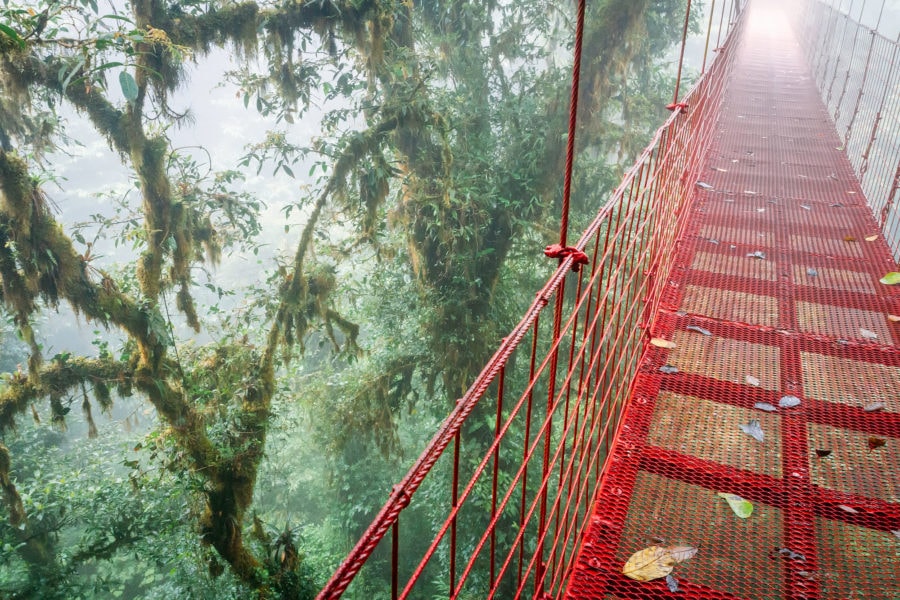
There are many digital nomads who choose to base themselves in Costa Rica due to the relaxed lifestyle, great surfing, nice beaches, and diverse landscape of volcanoes, waterfalls, and jungle. Costa Rica’s freelancer visa is called the Rentista, allowing foreigners to stay for up to 2-years, with the ability to extend it. This visa allows self-employed people or entrepreneurs to work in Costa Rica, but you can’t be an employee for another company.
Norway has been in the news a lot lately, touted as a Scandinavian paradise with its strong social democratic system, wealth, natural beauty, and progressive population. Lots of foreign digital nomads and remote workers would jump at the chance to move to Norway. And they can, for up to 2-years, with Norway’s Independent Contractor visa.

Spain has a Non-Lucrative Visa which allows foreigners to stay in Spain for at least a year, with the ability to renew. With it’s low-cost of living and mix of beaches, mountains, and relaxed lifestyle, it’s a favorite with many location independent people. However technically you are not allowed to “work” on this visa — they’re looking for people who are “retired” and self-sufficient.
This relatively new phenomenon of countries launching digital nomad visas to attract remote workers was predicted over 20-years ago by Japanese technologist Tsugio Makimoto who wrote that remote working would force nations “to compete for citizens”, and that digital nomad-ism would prompt “declines in materialism and nationalism”.
His prophecy is coming true, and I fully expect to see many more nations opening up their borders to these “citizens of the world” who are able to work remotely from their laptops in the years to come. The future is going to be interesting, that’s for sure!
I hope you enjoyed my guide to countries with digital nomad & remote work visas! Hopefully you found it useful. Here are a few more wanderlust-inducing articles that I recommend you read next:
Have any questions about remote work visas? Drop me a message in the comments below!
This is a post from The Expert Vagabond adventure blog.
The post The Ultimate At-Home Post-Travel Facial appeared first on The Blonde Abroad.
The post How to Budget for a Destination Wedding appeared first on The Blonde Abroad.
The post The Ultimate Self-Guided ATV Adventure Around Santorini appeared first on The Blonde Abroad.
The post Recipes Around the World: Belarusian Draniki appeared first on The Blonde Abroad.
The post The Coolest Airbnbs in San Diego appeared first on The Blonde Abroad.